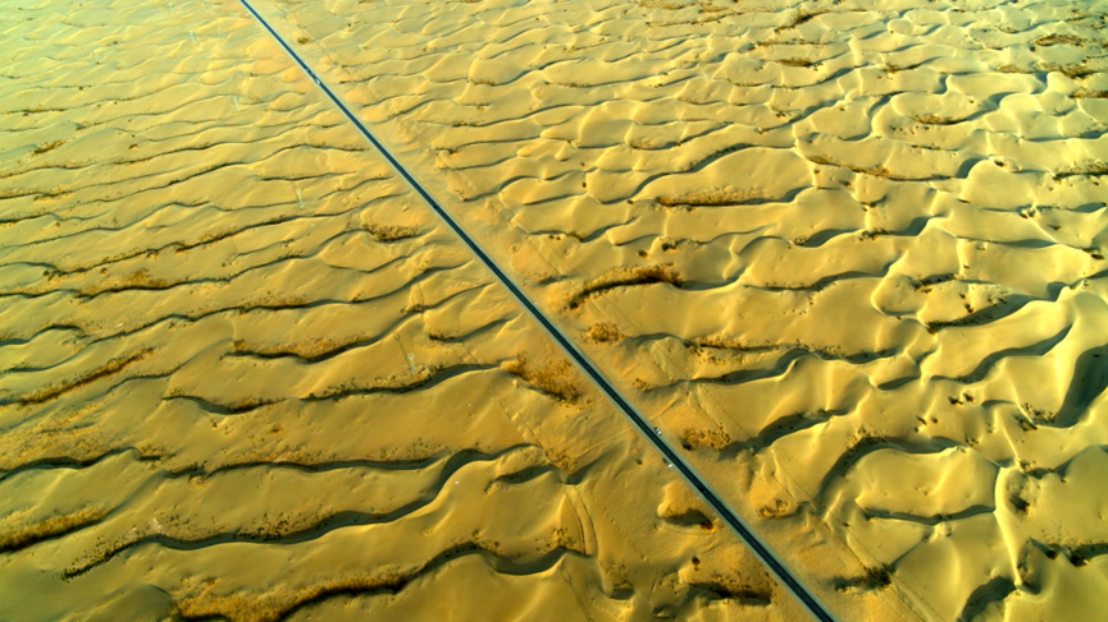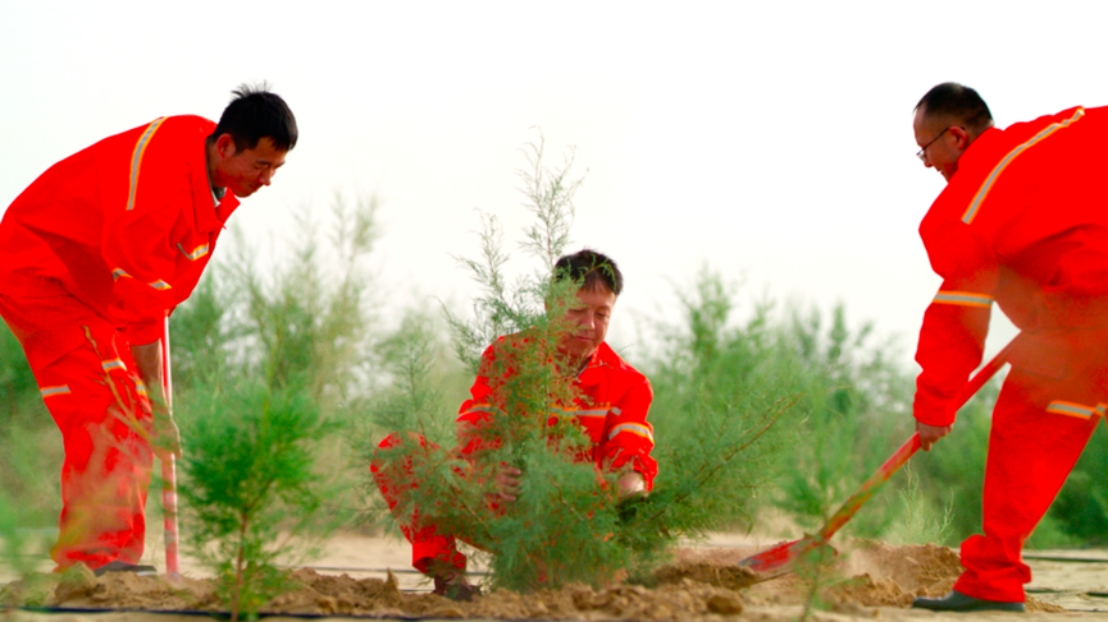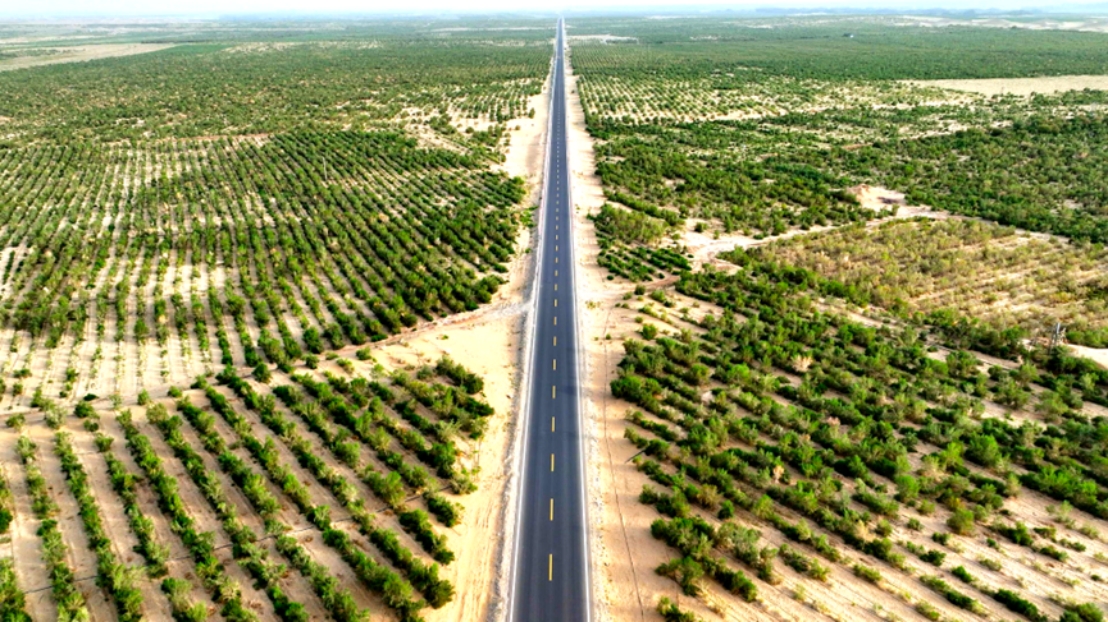
In Yutian County, deep in the heart of the Taklimakan Desert, a long battle between people and sand is quietly transforming the landscape. Five years ago, it was a vast expanse of dunes. Today, patches of resilient green are emerging across the land.

At dawn, as sunlight spreads across the golden dunes, members of the CHN Energy Xinjiang Branch’s village work team begin their day’s labor. They hold young saplings steady, packing soil around their roots with care and hope. “The roots must go deep so the trees can stand firm against the wind and sand,” reminds Shang Lizhi, First Secretary stationed in Baishituogelake Village, as he wipes the sweat from his brow.
This “green revolution” began in 2020. Facing relentless sandstorms, CHN Energy Xinjiang Branch launched an ecological public welfare forest project, investing a total of 10 million yuan to plant 10,000 mu of ecological forest along the desert’s edge. Today, more than three million tamarix and saxaul trees sway gracefully in the wind, forming a green barrier that locks the shifting dunes firmly in place.

Even more encouraging is the new hope growing beneath this green canopy. Veteran team member Maimaiti Aihemaiti bends among the dense tamarix shrubs, planting Cistanche seedlings with a satisfied smile. “Planting tamarix is like putting reins on the desert,” he says. “With Cistanche growing underneath, the sand stays put, and villagers’ pockets get fuller.”
Known as the “gold of the desert”, Cistanche has become a key source of income for local residents. The 7,000 mu of Cistanche interplanted under the trees yield about 1,200 tons annually, generating sales of up to six million yuan each year. For villager Silimuhan Maitudi, the change is tangible: “There’s less sand now, and we can even dig ‘gold’ out of it. Life feels brighter than ever!”

Yasheng Maimaitiyiming, a public forest manager in Yutian County, has witnessed this land’s transformation firsthand. For six years, he has guarded this new oasis and watched forest coverage rise from 5.05% to 13.84%. “The wind and sand used to be terrible. All you could see were blinding dunes, with almost no green in sight,” he recalls.
Today, the battle against the desert continues. “We’re not just here to stop the sand—we want to bring new life to this land,” says Liu Jing, leader of the village work team, with firm resolve. The team is expanding its green boundary projects and promoting intercropping models that combine tamarix with Cistanche and local specialty crops like Yutian roses, integrating ecological restoration with economic growth.
Across this once-barren desert, every tamarix tells a story of perseverance, and every patch of new green weaves a vision of hope. The desert control workers of CHN Energy are sowing the seeds of spring, by hand, into the heart of the sands.